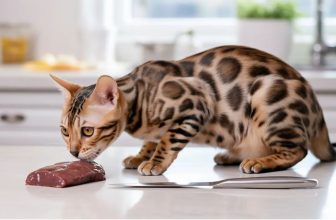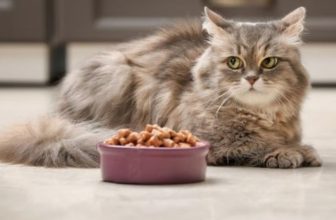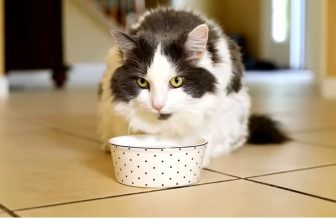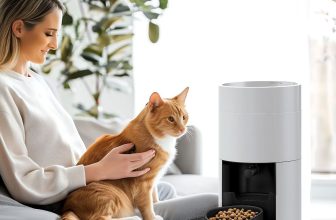Can You Give Cats Chicken? The Ultimate Safe Guide
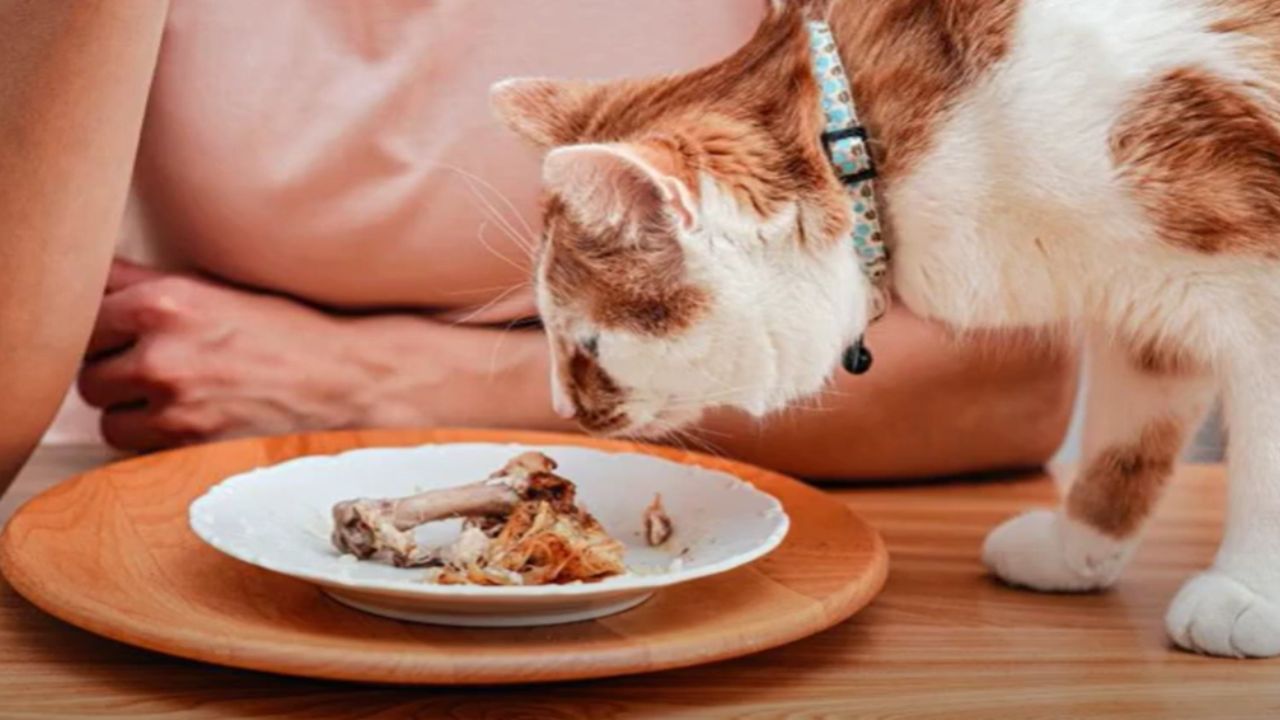
Yes, you can give cats chicken, and it’s both safe and nutritious for them.
Just make sure it’s cooked and completely unseasoned. Feeding your cat chicken is a great way to add protein to their diet. Since cats are natural carnivores, chicken gives them the essential nutrients they need to stay healthy and strong.
But hold on—there are a few things you need to watch out for. Avoid giving raw or seasoned chicken, as it can cause health problems. Spices, salt, garlic, or onions are a big no-no for cats.
To keep your furry friend safe, always stick to plain, cooked chicken with no added flavoring. It’s best served in small, balanced amounts alongside their regular food.
In this article, we’ll explore:
-
The benefits of giving chicken to cats
-
How to prepare it properly
-
What mistakes to avoid
So, if you’ve ever wondered, “Can you give cats chicken?”, the answer is yes—just make sure you do it the right way!
Benefits Of Chicken
Many cat owners wonder if they can feed their cats chicken. Chicken is often seen as a healthy and tasty option for our feline friends. But is it good for them? Let’s explore the benefits of chicken for cats and find out.
High Protein Source
Chicken is a great source of protein for cats. Protein is vital for cats because it helps build and repair tissues. It also supports a strong immune system.
Here are some reasons why chicken is a good protein source for cats:
- Lean meat: Chicken is low in fat and high in protein.
- Muscle growth: Protein helps cats build and maintain muscle.
- Energy: Protein provides energy that cats need to play and stay active.
Chicken can be served cooked or raw. Cooked chicken should be plain, without spices or sauces. Raw chicken should be fresh and properly handled to avoid bacteria.
| Benefits | Details |
|---|---|
| High Protein | Helps in muscle growth and repair |
| Low Fat | Reduces the risk of obesity |
| Energy Source | Keeps cats active and playful |
Essential Nutrients
Chicken is not only high in protein but also rich in essential nutrients. These nutrients support the overall health of cats.
Some key nutrients found in chicken include:
- Vitamins: Chicken is a good source of B vitamins, which support metabolism and energy production.
- Minerals: Chicken contains important minerals like phosphorus and selenium.
- Amino acids: Chicken provides essential amino acids that cats need for various body functions.
These nutrients help maintain healthy skin, a shiny coat, and strong bones. They also support the proper functioning of the heart and other organs.
Feeding your cat chicken can be a healthy addition to their diet. Just make sure to balance it with other foods to provide complete nutrition.
Risks Of Feeding Chicken
Chicken can be a tasty treat for cats. Many pet owners want to know if it’s safe to feed chicken to their feline friends. While chicken can be a good source of protein, there are some risks to consider. It is important to know about the dangers and take precautions.

Bone Hazards
Feeding chicken bones to cats can be dangerous. Bones can splinter and cause serious problems. Here are some potential issues:
- Choking hazard: Small bones can get stuck in a cat’s throat.
- Internal injuries: Splintered bones can pierce the stomach or intestines.
- Blockages: Bones can cause blockages in the digestive tract.
It is best to remove bones before feeding chicken to your cat. Cooked bones are especially risky. They become brittle and are more likely to splinter. Always supervise your cat when giving them chicken. Make sure they chew their food well to avoid problems.
Allergic Reactions
Some cats can be allergic to chicken. Allergies can cause various symptoms. Here are some signs of an allergic reaction:
- Itching: Cats may scratch or bite their skin.
- Digestive issues: Vomiting or diarrhea can occur.
- Respiratory problems: Sneezing or coughing may be present.
If you notice any of these symptoms, stop feeding the chicken immediately. Consult your vet for advice. They may recommend allergy tests or a special diet. Always introduce new foods slowly. This helps you see if your cat has any adverse reactions. Be cautious and keep an eye on your cat’s health.
Cooking Methods
Cats love meat, and chicken is no exception. But how should you prepare it for your furry friend? Different cooking methods can change the nutritional value of chicken. It’s important to know which methods are best. Let’s explore the best ways to cook chicken for cats.
Boiling Vs. Baking
Boiling and baking are two common methods. Boiling chicken is straightforward. Just place the chicken in a pot of water and cook it until it’s done. Boiled chicken is soft and easy to chew. This can be good for cats with dental issues. Boiling also keeps the chicken moist.
Baking chicken involves placing it in an oven. Baked chicken can be crispier and have a different texture. This method retains more flavor. Some cats might prefer this. Baking can also help preserve some nutrients better than boiling.
Here’s a comparison:
| Boiling | Baking |
|---|---|
| Soft texture | Crispy texture |
| Moist | Flavorful |
| Good for dental issues | Preserves nutrients |
Avoiding Seasoning
Seasonings can be harmful to cats. Salt and pepper can upset their stomachs. Garlic and onion are toxic to cats. It’s best to cook chicken plain. This keeps it safe for your pet.
Stick to these tips:
- Do not add salt.
- Do not use pepper.
- Avoid garlic and onion.
- Cook chicken plain.
- Check ingredients before serving.
Plain chicken is safe and healthy. It’s easy to prepare. Your cat will love it!
Portion Control
Feeding cats a balanced diet is important for their health. Some cat owners wonder if chicken is safe for their furry friends. Yes, cats can eat chicken, but it must be given in the right amount. Portion control is key to ensuring your cat stays healthy.
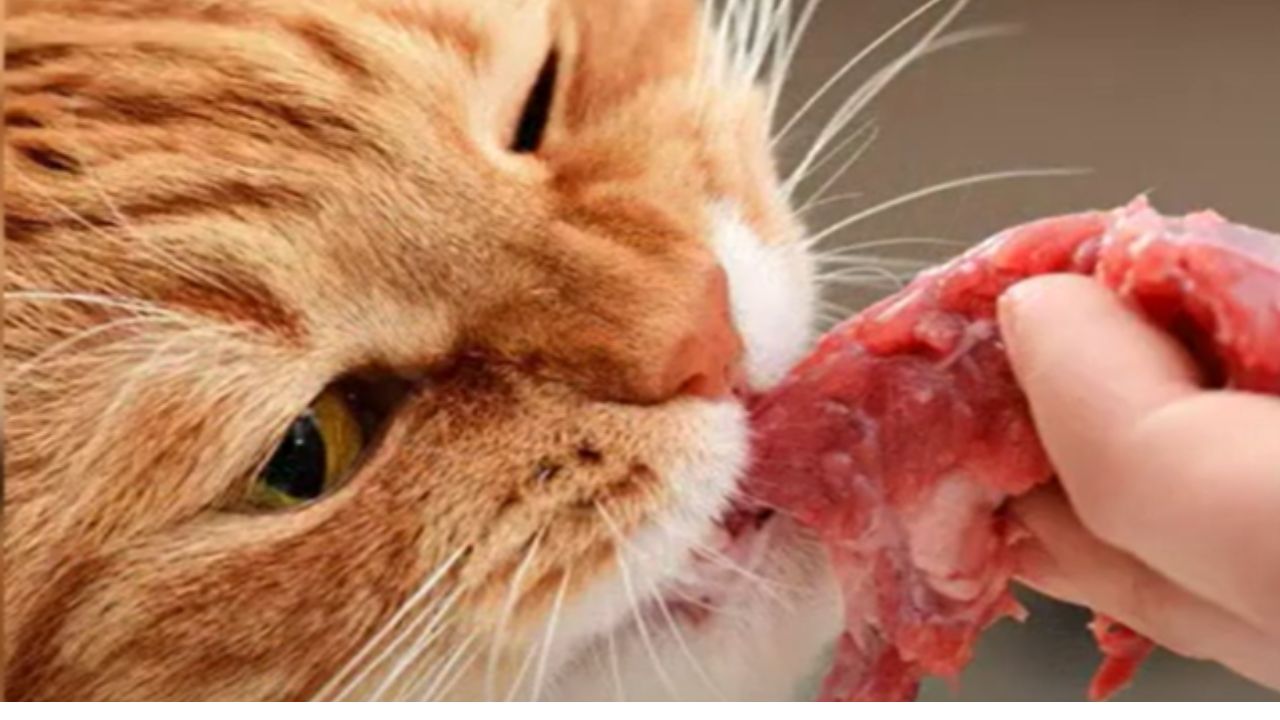
Serving Sizes
Cats love the taste of chicken. It is a great source of protein for them. But serving sizes matter. Giving your cat too much chicken can lead to weight gain. A good rule of thumb is to keep it simple and small.
Here are some tips on serving sizes:
- Small pieces: Cut the chicken into small, bite-sized pieces.
- No bones: Make sure the chicken is boneless to avoid choking hazards.
- No skin: Remove the skin to reduce fat intake.
It is also important to cook the chicken properly. Raw chicken can carry bacteria. Always boil or bake it without any seasoning. This keeps it safe and healthy for your cat.
Frequency Of Feeding
Feeding chicken to your cat should not be a daily habit. It should be given as a treat or supplement, not a meal replacement. Regular cat food contains all the nutrients your cat needs. Chicken should only be an occasional addition.
Here is a simple guide for how often you can feed chicken to your cat:
- Once a week: Keep it to once a week to avoid overfeeding.
- Special treats: Use it for training or as a special reward.
- Monitor health: Watch your cat’s weight and health. Adjust if needed.
By following these guidelines, you can ensure your cat enjoys chicken safely and healthily. Always consult your vet if you are unsure about your cat’s diet.
Raw Chicken Diets
Feeding cats a raw chicken diet has become popular. Many pet owners consider it natural and healthy. But, there are both benefits and risks. Understanding these can help you make the best choice for your cat’s diet.
Potential Benefits
Feeding cats raw chicken can have several advantages. Some pet owners believe it closely mimics their natural diet. This can lead to better digestion and improved coat health.
- High Protein Content: Chicken is a great source of protein. Cats need protein for muscle growth and energy.
- Natural Diet: Raw chicken is similar to what wild cats eat. This can make it more appealing and satisfying.
- Improved Hydration: Raw chicken contains more moisture than dry kibble. This helps keep cats hydrated.
Some studies suggest that a raw diet can reduce allergies. This might lead to fewer skin and digestive issues. Also, feeding raw chicken can help in maintaining healthy teeth. Chewing on raw meat can clean their teeth naturally.
Health Risks
Feeding raw chicken to cats carries certain risks. Bacterial contamination is a major concern. Raw chicken can contain harmful bacteria like Salmonella and E. coli. These can cause serious health issues for both cats and humans.
- Risk of Infection: Bacteria can cause infections in cats. Symptoms include vomiting, diarrhea, and lethargy.
- Nutritional Imbalance: Raw diets can lack essential nutrients. Cats need a balanced diet for optimal health.
- Choking Hazards: Bones in raw chicken can be dangerous. They can splinter and cause choking or internal injuries.
Handling raw chicken requires care. Always wash your hands and clean surfaces after preparation. Ensuring the chicken is fresh and from a reliable source is crucial. Consulting a vet before switching to a raw diet is advisable.
Signs Of Digestive Issues
Chicken is a common ingredient in cat food. Many pet owners wonder if it’s safe to give their cats plain chicken. While it can be a healthy treat, it’s important to watch for signs of digestive issues. Cats have sensitive stomachs, and even a slight change in diet can lead to problems.
Vomiting
Vomiting is a clear sign that something is wrong with your cat’s stomach. If your cat vomits after eating chicken, it might be allergic or the chicken might be spoiled. Here are some signs to watch for:
- Frequent vomiting
- Vomiting soon after eating
- The presence of undigested food in the vomit
If vomiting occurs, stop giving chicken. Try feeding small amounts and see if the problem goes away. Consult a vet if vomiting continues.
Diarrhea
Diarrhea is another sign of digestive issues. It can be caused by sudden diet changes. Here’s what to look for:
- Loose, watery stools
- Frequent bowel movements
- Foul-smelling stools
Diarrhea can lead to dehydration. Make sure your cat drinks enough water. If diarrhea lasts more than a day, visit your vet. Sometimes, chicken might be contaminated, causing these issues. Ensure the chicken is cooked well and free from spices.
Alternatives To Chicken
Chicken is a common protein source in many cat foods. It is safe for cats in moderation. But variety is key to a balanced diet. There are other good protein options for cats. This post explores alternatives to chicken and commercial cat foods.
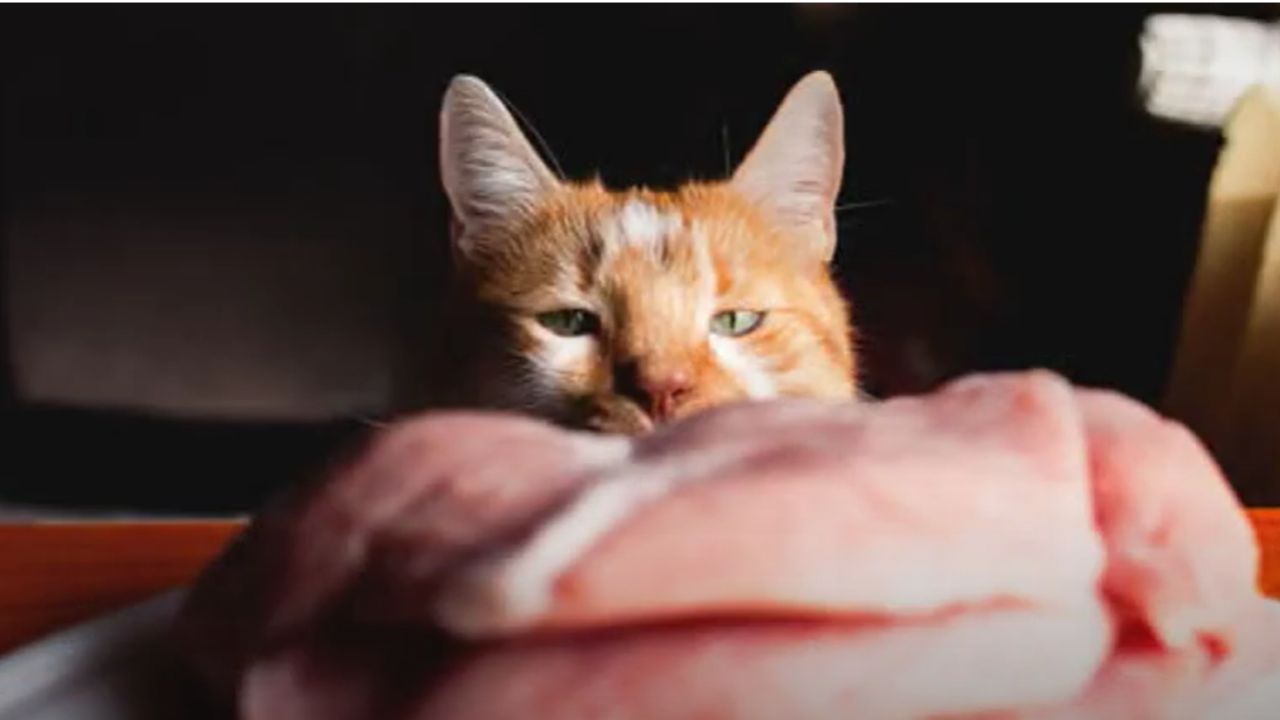
Other Proteins
Cats need protein for energy and muscle health. Chicken is popular, but other meats work too. Here are some great alternatives:
- Turkey: Similar to chicken, and easy to find.
- Beef: Rich in iron and vitamins.
- Fish: Provides Omega-3 fatty acids.
- Lamb: Good for cats with allergies.
Turkey is lean and nutritious. It can be served cooked and plain. Beef is another choice, packed with protein and iron. Always cook it well to avoid bacteria. Fish is excellent for cats, offering Omega-3 fatty acids. But limit it to avoid mercury buildup. Lamb is a hypoallergenic option, ideal for sensitive cats.
| Protein | Benefits |
|---|---|
| Turkey | Lean and nutritious |
| Beef | Rich in iron and vitamins |
| Fish | Omega-3 fatty acids |
| Lamb | Hypoallergenic |
Commercial Cat Foods
Store-bought cat foods offer balanced nutrition. They are convenient and come in many flavors. Here are some common types:
- Dry Food: Long shelf life, good for teeth.
- Wet Food: Higher moisture, helps with hydration.
- Raw Food: Natural diet, but needs careful handling.
- Freeze-Dried: Keeps nutrients intact, easy to store.
Dry food is popular for its long shelf life. It also helps clean teeth as cats chew. Wet food contains more water, which helps keep cats hydrated. This is important for cats who drink less water. Raw food mimics a natural diet. It needs careful handling to avoid bacteria. Freeze-dried food retains most nutrients. It is convenient and easy to store.
| Type | Benefits |
|---|---|
| Dry Food | Long shelf life, good for teeth |
| Wet Food | Higher moisture helps with hydration |
| Raw Food | A natural diet needs careful handling |
| Freeze-Dried | Keeps nutrients intact, easy to store |
Consulting The Vet
Cats are known for their picky eating habits. Many cat owners wonder if they can feed their cats chicken. Chicken is a common food in many households, and it seems natural to share it with our feline friends. Consulting the vet is crucial before making any changes to your cat’s diet.
Professional Advice
Vets are the best source of information for your pet’s health. They can give you advice tailored to your cat’s needs. Here are some points to consider:
- Nutritional Needs: Cats need a balanced diet. The chicken alone may not meet all their nutritional needs.
- Allergies: Some cats can be allergic to chicken. A vet can help identify food allergies.
- Weight Management: If your cat is overweight, feeding chicken may not be the best idea.
It is important to consult the vet for any health issues your cat might have. A vet can suggest the right portion size and frequency for feeding chicken. Regular vet visits ensure that your cat stays healthy and happy.
Dietary Recommendations
Feeding chicken to cats can be beneficial if done correctly. Here are some dietary recommendations:
- Cooked Chicken: Always feed cooked chicken to avoid food poisoning. Raw chicken can contain harmful bacteria.
- No Seasoning: Avoid adding salt, spices, or sauces. These can be harmful to cats.
- Moderation: Chicken should be a treat, not a main meal. Too much chicken can lead to nutritional imbalance.
Here is a simple guide for feeding chickens:
| Cat’s Weight | Chicken Portion | Frequency |
|---|---|---|
| Up to 5 lbs | 1-2 small pieces | Once a week |
| 5-10 lbs | 2-3 small pieces | Twice a week |
| Over 10 lbs | 3-4 small pieces | Three times a week |
Frequently Asked Questions: Can You Give Cats Chicken?
Q1: Can I Give My Cat Cooked Chicken?
A1: Yes, you can give your cat cooked chicken. Ensure it is plain, without seasoning or sauces. Cooked chicken provides lean protein.
Q2: Can I Give My Cat A Piece Of My Chicken?
A2: Yes, you can give your cat a piece of chicken. Ensure it is cooked, plain, and boneless. Avoid seasoning or adding spices.
Q3: What Meat Should Cats Not Eat?
A3: Cats should not eat raw pork, raw fish, or processed meats. These can cause health issues or contain harmful bacteria. Avoid feeding them seasoned or spiced meats as well.
Q4: Is Chicken Hard For Cats To Digest?
A4: Chicken is not hard for cats to digest. It is a good source of protein and nutrients for them. Always cook chicken properly and avoid seasoning.
Q5: Can Cats Eat Cooked Chicken?
A5: Yes, cats can eat cooked chicken. It should be plain, without seasoning or bones.
Conclusion
Feeding your cat chicken can be healthy. Ensure it is plain and cooked. Avoid adding spices or seasonings. Always consult your vet before making changes. Moderation is key. A balanced diet keeps your cat healthy. Chicken can be a tasty treat.
Please keep it simple and safe for your furry friend. Your cat’s health is the priority. Happy feeding!



